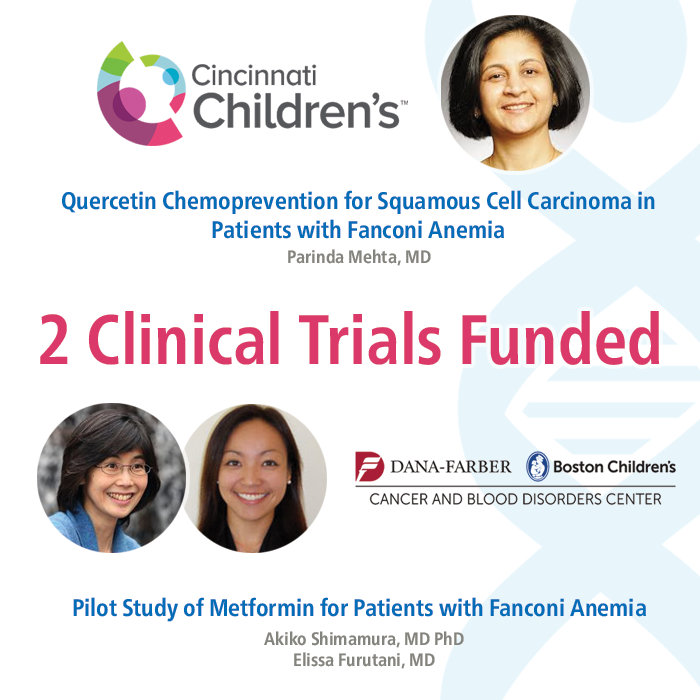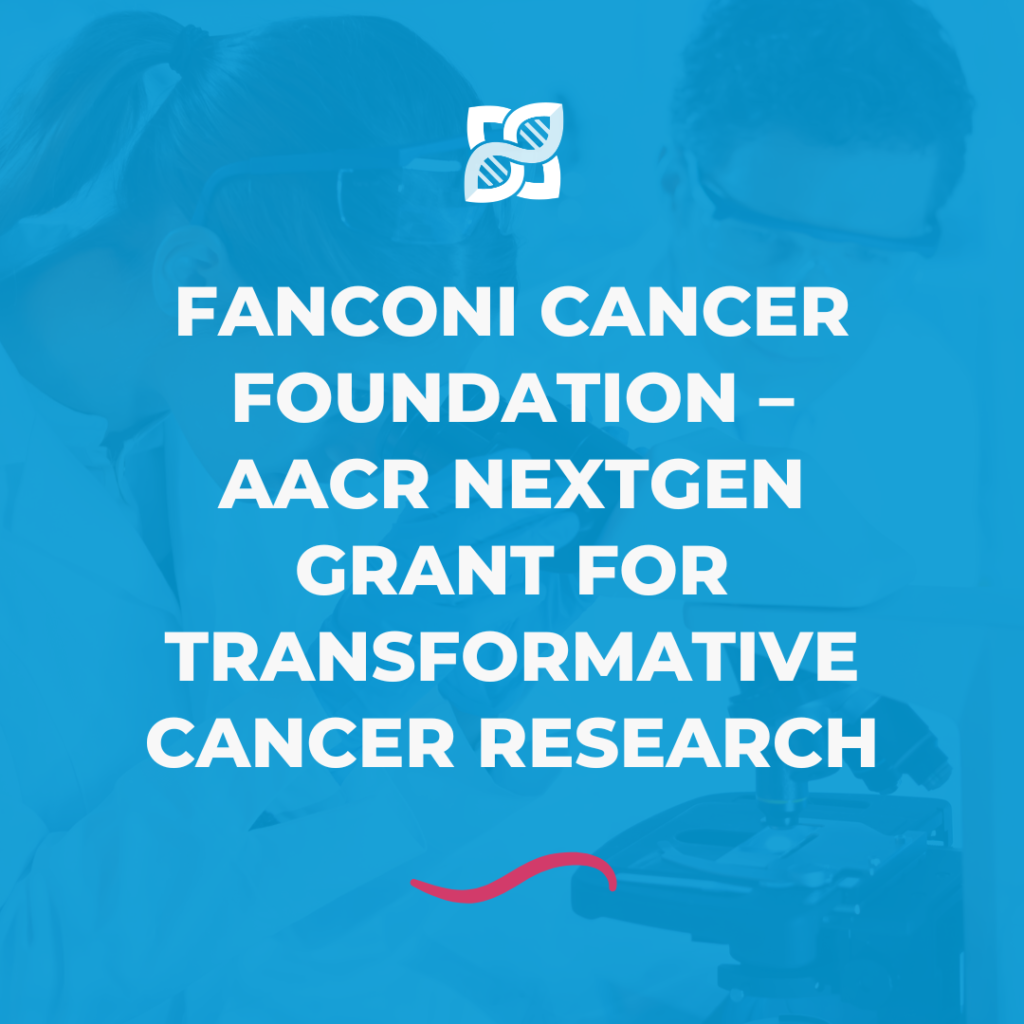Pilot Study of Metformin to Treat Fanconi Anemia
While allogenic stem cell transplantation can cure the hematologic complications of Fanconi anemia (FA), transplant is associated with potential short-term and long-term risks, and has been associated with an increased risk of solid tumors. Safe and effective oral therapies to treat or prevent marrow failure and cancer are urgently needed. With this goal, collaborative laboratory studies by some of the leading FA investigators, including Dr. Markus Grompe, Dr. Alan D’Andrea, Dr. Grover Bagby, and others, have been ongoing for over a decade. These lab studies have identified a few candidate compounds and molecular pathways that protect against DNA damage in FA models and improve hematopoiesis. The most promising of the compounds studied to date is metformin.

Metformin (N,N-dimethylbiguianide) has been shown to be a safe oral medication widely used for many decades to treat high blood sugar. Recently, there has been renewed interest in metformin given its anti-oxidant properties, aldehyde scavenging capability, and potential cancer-protective effects. A decreased incidence of breast cancer, lung cancer, colorectal cancer, and hepatocellular carcinoma has been observed in patients treated with metformin. There are ongoing trials testing metformin both for cancer prevention and cancer treatment in the general population. Promisingly, preclinical FA studies have demonstrated that metformin protects against DNA damage, and improves blood counts while also delaying tumor formation in mice with Fanconi anemia.
Based on these data, researchers at Boston Children’s Hospital have developed a pilot study of metformin for patients with FA.
This study is now open. Eligibility criteria include age 6-35 years and at least one of the following cytopenias: hemoglobin <10g/dL, platelets <100k/ uL, ANC<1000/uL. The study will assess improvement in blood counts after six months of treatment. This pilot trial also incorporates biological studies investigating the effect of metformin on DNA damage and oral cancer risk. The results of this study will inform potential future trials investigating the long-term use of metformin for cancer prevention or marrow failure prevention, as well as combination therapies with androgens or other agents to treat marrow failure, or as adjunct therapy in combination with transplant to reduce cancer risk.
Quercetin Chemoprevention for Squamous Cell Carcinoma in Patients with FA
Excessive toxicity from chemotherapy and radiation makes treatment for squamous cell carcinoma (SCC) in FA quite challenging and leads to negative outcomes in most patients. There is clearly a need for a new approach for prevention and/or treatment that has fewer and less severe side effects. A previous study by Cincinnati Children’s Hospital Medical Center showed that the naturally occurring antioxidant quercetin is safe and well tolerated in pre-transplant patients with FA. Quercetin is a plant polyphenol with multiple pharmacological properties including anti-cancer, anti-inflammatory and anti-oxidant effects in preclinical models. Additionally, there was evidence of decreased DNA damage in oral mucosa brushings from patients with FA (pre-transplant) after treatment with quercetin for one month.
Based on these promising data, this new study will examine whether quercetin treatment in post-transplant patients may prevent or delay the development of SCC. Participants in the study will take quercetin for at least six months, with the possibility to take it for up to two years. It is hoped that quercetin treatment will result in decreased oxidative stress and ongoing DNA damage of the mucosa, leading to the elimination or delay of the development of squamous cell carcinoma of the oral mucosa.




